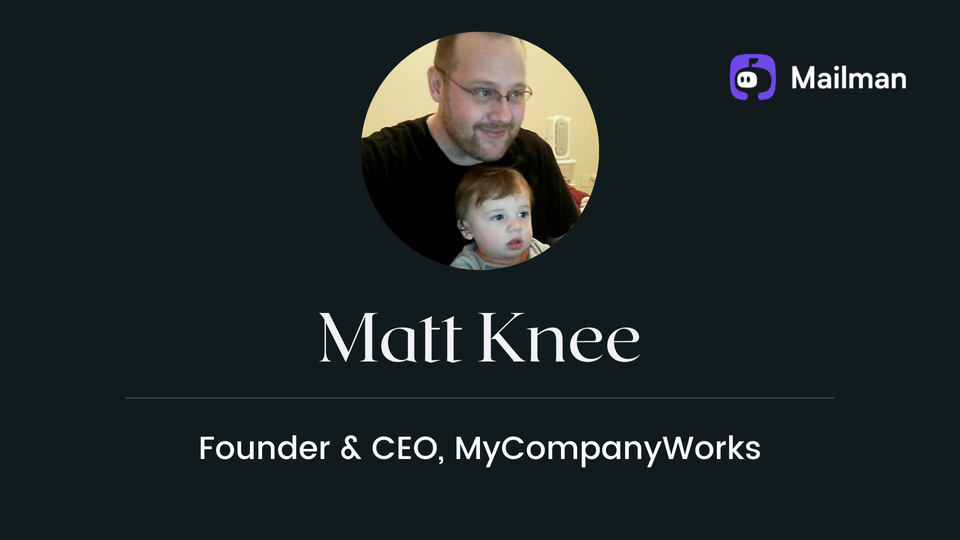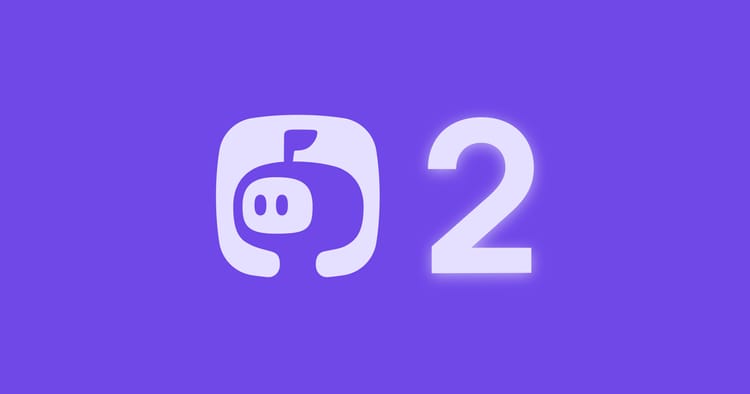'Ship' towards your goals

The usual advice goes, "Work towards your goals". But that's not enough. A lot of people keep working on their goals but don't get anywhere.
The reason- They work on their goals but don't ship anything.
The solution- 'Ship' towards your goals!
That's what Matt Knee, Founder & CEO of MyCompanyWorks, does.
Let's hear it directly from him -
"So every January I know exactly what I'll be doing for the year in a plan. Every week I've to ship 1 to 3 things that are part of those yearly goals. That's not a lot, a couple of personal goals, a couple of business goals in a week and that's enough.
I'm "shipping" something for each one of those goals, I'm not just "working" towards them, but actually putting out something real and tangible for each one of those goals. Shipping is really important. You can keep working on your goals and not put out anything. Too many people are satisfied with working on their goals, being busy with them, but that's not enough. Don't fool yourself. Focus on shipping something towards your goals every week. That's what I try to do.
It doesn't matter if it's something small. But ship something. It can be a small feature. Or a landing page to build a waitlist. Something that's finished. That's shipping towards your goals, not just working towards them."
That's brilliant advice from Matt Knee. Ship towards your goals, don't just work towards them. WoW!
In this episode, Matt also talks about being a solo-founder of his 19-year-old business, the importance of systematizing everything, how he wrote a book while running a business, a typical day in his life, being a night owl, 'shipping' towards goals, being hopelessly addicted to Twitter, and much more.
Let's dive straight in!

Matt introduces himself
Hi, I'm Matt Knee, Founder & CEO of MyCompanyWorks, and author of "Startups Made Simple". We help entrepreneurs, accountants, lawyers, and other professionals handle business entity filings and management. We basically help your company get started, and I've been doing this since 2001. So it won't be wrong to say that I'm kind of an old-school dot com veteran.
If you want to start a company, you can come to us, and we'll take care of all the paperwork, compliance, licenses, bookkeeping (via vetted partners), bank accounts (via partner banks), and much more. We serve all 50 states in the US, and at this point, 25% of our clients are from outside the US. That shows that we have plenty of international experience, which often gives us an edge over our competitors. Since 2001, we've served over 60,000 such clients in the US and outside, so we're definitely very good at it.
On being a solo-founder
There are good sides and bad sides to having a partner in the business. When you have a co-founder, you need the agreement of both before making a decision. That consensus isn't always easy to achieve. Sometimes one founder doesn't want to contribute much to a project, while the other really wants to work on it. That puts more work and responsibility on one person. As you can see, there are plenty of reasons why having a co-founder can go wrong. It can surely help you in tough times to have someone by your side to weather the storm.
In today's time, it's not very hard to go solo. As you don't have to do everything by yourself. There are so many platforms built where you can simply go and sell. No need to code anything. There's Shopify, there's Amazon and so many other companies that let you sell your product/service without having any technical skills. Owing to all these conveniences, I would recommend anyone to at least try going solo. If it doesn't work for you, then you get a partner. But a partner is really not a necessity, not in today's time. Being a solo founder is totally fine.
I think Venture capitalists prefer multiple founders because it's easier and safer for them. If one founder cannot keep the company running, or can't take the pressure, there's always another one who can take it forward. They don't want one founder to be a single point of failure. That's why they've built this narrative that having a co-founder is an absolute must, but I don't think that's really true. I've been a solo founder for the past 19 years, and my company is doing fine.
Writing a book while building a company
In 2018, 17 years after starting my business, I decided to document all my startup learnings in the form of a book called, "Startups Made Simple". It's not just my learnings, but also learnings from 1000s of founders that I've worked with over the years.
Writing a book is a big undertaking. Doing it while running a business is even more difficult. But the way I was able to do it is by building systems. That's also something I talk about in the book. By the time I started writing the book, I had systemized everything in the business, to a point that the business didn't need me to operate smoothly. All responsibilities and authority were delegated.
I told everyone I'll be writing the book, and they took care of the rest. I would not be able to even think of writing a book, had I not had proper systems in place. I built a company that mostly runs itself. I talk a lot about how I did this in the book. Building systems is really important if you don't want the business to take over your life.
A typical day
I'm actually a night owl. I stay up till very late at night, until about 2 or 3 AM. For that reason, I wake up late in the morning. About 5 years back I started treasuring my sleep to the point that I don't compromise on my sleep. I get my proper 7-8 hours of sleep, and thanks to my wife she takes care of everything in the morning- taking the kids to school, etc.
If I get proper sleep I'm 3 times more effective than if I didn't sleep well enough. I didn't do this for the first 13-14 years of my business, and it affected my health. I was on 5 medications, had high blood pressure, stress, anxiety, and whatnot.
But once I started sleeping according to my sleep cycle, even if that means waking up late by around 10 or sometimes even noon. I know this would sound insane to listeners. But this is healthy for me, and I can afford to sleep that late because I've built systems into my business and I've got an amazing wife who takes care of things in the morning.
I don't rush into anything in the morning. I don't check emails or tasks. I just go make some tea, brush my teeth, read some Twitter or blogs. Without rushing into anything.
Once all that is done. Then I start working. The first thing I do is the admin stuff. Clearing my inbox, or anything that needs my attention. I know this is the opposite of the usual advice that you should do your creative work in the morning and then do the admin stuff. But in my case, as I wake up late and ease into my day, by that time the world is already up and running, so I've to make sure nothing's on fire that needs my urgent attention, and only after I clear my inbox I can get to the big picture work for the rest of the day.
Every day I do at least 3 to 4 hours of deep-focused work. This is where Mailman becomes really important to me because I do have to keep my inbox open all the time, it's just a psychological requirement for me. But Mailman ensures that my inbox is peaceful even while I have it open all the time.
I work around 5 hours a day. Then at around 6-7 PM in the evening. This is our family time, we've dinner, maybe watch a movie and relax.
Between 9-10 O'clock is my reading and review time. That's when I do all my business reading and review. Whether that's checking company analytics, how are the numbers doing, or reading a business book. I do all this at night because I think better at night.
Lastly, I do some personal reading and consume twitter.
That's what I do until I go to bed.
On burnout
I've suffered burnout before, and I've written about this in my book. At one point, I wanted to sell my company for anything anyone gave me. It was because I was so burnt out. I'm glad I didn't sell the business at that point, as today the business is doing pretty well.
Now, to stay productive and not burn out again. I make sure to not overwhelm myself. That was a big problem for me, I took everything under the sun as I was a solo founder. So that's one problem with being a solo founder, you take everything on yourself. You're the owner of everything with no one to pitch in, at least in the starting stages of the company. But now I've built a team and systematized everything which doesn't put a lot of load on me.
The other thing is, I started focusing on is getting proper sleep. You can't compromise on sleep for long, eventually, it'll catch up with you.
Another good thing I did was to get some good business coaching. We focused on having specific, written goals, and not overwhelming goals. I spent a month, planning my yearly goals.
'Ship' towards your goals.
So every January I know exactly what I'll be doing for the year in a plan. Every week I've to ship 1 to 3 things that are part of those yearly goals. That's not a lot, a couple of personal goals, a couple of business goals in a week and that's enough.
I'm "shipping" something for each one of those goals, I'm not just "working" towards them, but actually putting out something real and tangible for each one of those goals. Shipping is really important. You can keep working on your goals and not put out anything. Too many people are satisfied with working on their goals, just being busy with them, but that's not about it. You're fooling yourself. Focus on shipping something towards your goals every week. That's what I try to do.
It doesn't matter if it's something small. But ship something. It can be a small feature. Or a landing page to build a waitlist. Something that's finished and can be put in front of people. That's shipping towards your goals, not just working towards them.
Hopelessly addicted to Twitter
I spend a lot of time on Twitter. It's a place where I get access to the thoughts of the smartest minds on the planet, in a very short consumable format. Besides, it's entertaining as well.
I also get a lot of productivity and time management insights from there. The platform is really valuable for me. I don't spend much time on other social media platforms, but on Twitter, I easily spend an hour every day.
One extra hour
Firstly the obvious one, which will get me divorced if I don't mention it (laughs)- with my wife and family of course. But given that I always spend tons of quality time with them, I would use that extra hour for writing.
I think writing is the meta-skill for every knowledge worker. The more you write, the better your thinking, you become a better organizer and decision-maker. There are too many benefits of writing. I realized it when I wrote my book. It clarified my thoughts a lot. It's life-changing.
How to follow Matt?
You can check our company at MyCompanyWorks.com. Get my book "Startups Made Simple" on Amazon. I'm on twitter @mattknee, my website is at mattknee.com and you can also write to me at mattknee@gmail.com.





